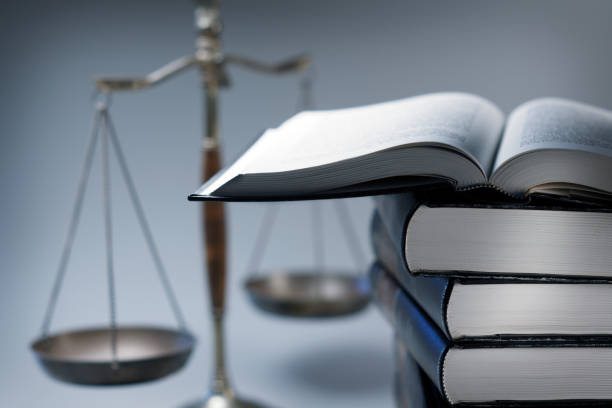In recent years, Non-Fungible Tokens (NFTs) have taken the digital world by storm, revolutionizing the way we buy, sell, and trade digital assets. These unique digital tokens, often associated with art, collectibles, and virtual real estate, have created a new frontier for creators and collectors alike. However, this burgeoning NFT ecosystem is not without its challenges and legal complexities. In this article, we will explore the legal issues associated with NFTs and help you better understand the legal landscape surrounding these digital assets.
What Are NFTs?
Before diving into the overcoming legal issues, let’s briefly understand what NFTs are. NFTs are blockchain-based tokens that represent ownership of a unique digital item or piece of content, often stored on a decentralized ledger like Ethereum. These tokens have gained immense popularity because they provide a way to prove ownership and authenticity of digital assets in a world where copying and sharing digital content is effortless.
Intellectual Property Rights
One of the most significant legal issues with NFTs revolves around intellectual property (IP) rights. When someone purchases an NFT, they are essentially buying a certificate of ownership for a digital asset. However, this ownership does not necessarily include the copyright or IP rights associated with the underlying content.
Creators and artists may retain the copyright to their work, even after selling an NFT of that work. This can lead to disputes over how the NFT owner can use, reproduce, or display the digital asset. To avoid legal trouble, it is crucial for NFT buyers to understand the terms of use and licensing agreements associated with the NFT they are purchasing.
Copyright Infringement and Plagiarism
NFTs have given rise to concerns over copyright infringement and plagiarism. Some individuals have tokenized digital content that they do not own, leading to legal battles when the original creators claim their rights have been violated. Proving ownership and originality can be challenging in the world of NFTs, and creators must be vigilant in protecting their work.
Fraud and Scams
As with any emerging market, NFTs have attracted their fair share of fraudsters and scammers. Fake NFTs, misleading descriptions, and phishing scams have become prevalent, causing financial losses and legal headaches for unsuspecting buyers. Due diligence and verifying the authenticity of an NFT and its seller are essential to avoid falling victim to scams.
Taxation and Regulation
The tax implications of NFT transactions can be complex and vary by jurisdiction. Governments are still grappling with how to classify and tax NFTs. Buyers and sellers must be aware of their tax obligations, including capital gains tax, when trading NFTs.
Moreover, regulatory bodies are starting to take an interest in NFTs, raising concerns about potential future regulations. These regulations could impact how NFTs are bought, sold, and traded, further complicating the legal landscape.
Smart Contract Vulnerabilities
NFTs rely on smart contracts, self-executing agreements with the terms of the NFT transaction encoded within them. However, smart contracts are not immune to vulnerabilities and bugs. When a smart contract fails or is exploited, it can lead to disputes and legal actions between parties involved in the transaction.
Protecting Your NFT Investments
Given the legal challenges surrounding NFTs, here are some steps you can take to protect your NFT investments:
- Research Thoroughly: Before purchasing an NFT, research the creator, the asset’s history, and the associated terms and conditions. Ensure that you are buying from a reputable source.
- Understand Licensing: Read and understand the licensing agreements that come with NFTs. They may dictate how you can use and display your NFTs.
- Keep Records: Maintain clear records of your NFT transactions, including purchase receipts, transfer records, and any correspondence with sellers.
- Legal Counsel: If you are unsure about the legal implications of a particular NFT transaction or need assistance with intellectual property matters, consider consulting with a legal professional experienced in blockchain and digital assets.
- Stay Informed: Keep up-to-date with the evolving legal and regulatory landscape surrounding NFTs, as changes can impact your rights and responsibilities.
Conclusion
While NFTs offer exciting opportunities for creators and collectors, they also come with a host of legal issues and challenges. From intellectual property disputes to fraud and regulatory uncertainties, participants in the NFT market must be well-informed and vigilant. As the NFT space continues to evolve, it is essential to stay updated on the latest legal developments and seek legal counsel when needed to navigate the complexities and protect your interests in this digital frontier. By taking proactive steps and staying informed, you can enjoy the benefits of NFTs while minimizing legal risks.
Remember, the NFT market is relatively young and evolving rapidly. Keeping a watchful eye on legal developments and seeking professional advice will help ensure a safe and legally compliant journey in the NFT space.
Frequently Asked Questions
Q1: Can I resell an NFT I’ve purchased?
A1: Generally, yes, you can resell NFTs, but it’s essential to be aware of any restrictions or licensing agreements that come with the NFT. Some creators may impose limitations on resale, so always review the terms associated with the NFT.
Q2: Do I automatically own the copyright to the digital asset when I buy an NFT?
A2: No, buying an NFT typically grants you ownership of the token representing the asset, not the copyright itself. Copyright remains with the creator unless explicitly transferred or licensed.
Q3: Are there age restrictions for buying NFTs?
A3: Age restrictions may vary by platform and jurisdiction. It’s important to check the terms and conditions of the platform you’re using and adhere to any applicable age restrictions.
Q4: How can I verify the authenticity of an NFT before purchasing?
A4: Verify the NFT’s authenticity by researching the creator’s reputation, examining the associated blockchain data, and seeking third-party verification if available. Be cautious of deals that seem too good to be true.

